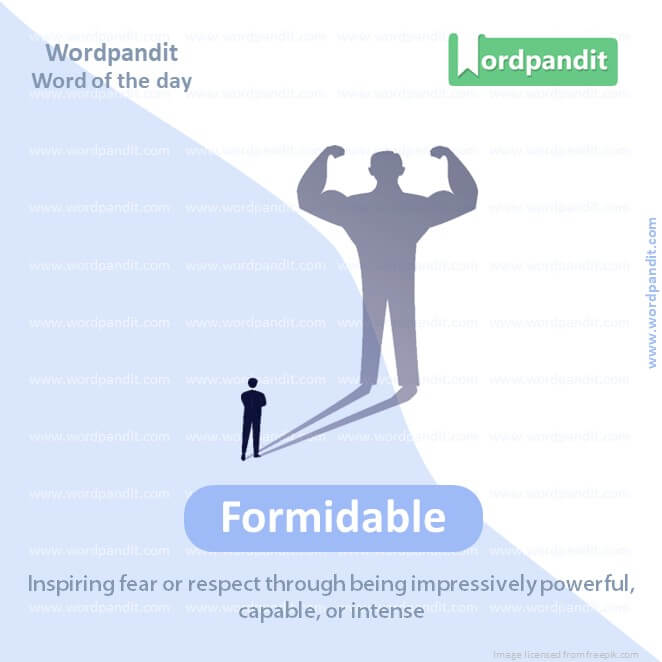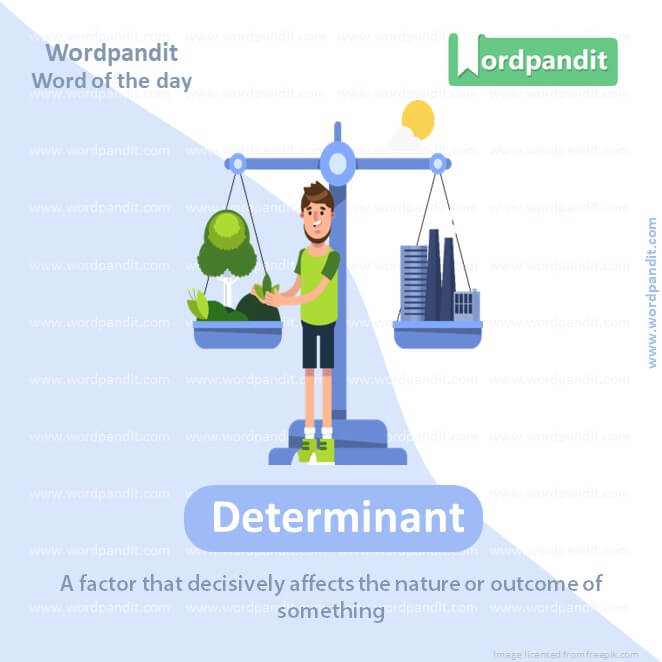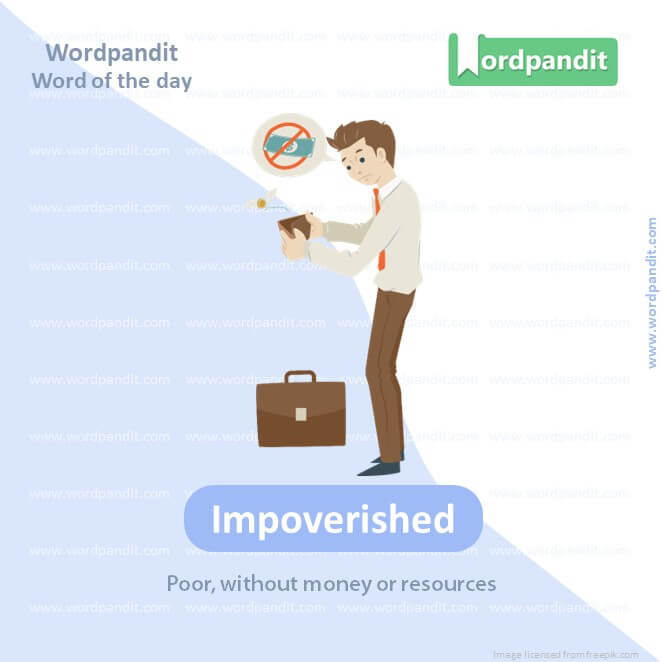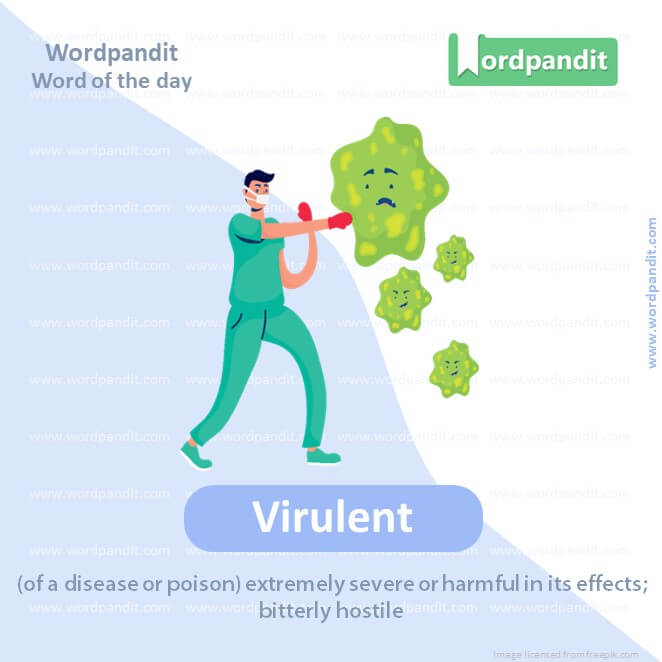Daily Vocabulary Words: List of Daily Used Words in Leading Indian Newspapers
Hi there. Welcome to this special section @ Wordpandit. Our endeavour here is straightforward: highlighting daily vocabulary words that you would come across in leading newspapers in the country. We have included the following newspapers in our selection:
• The Times of India
• The Economic Times
• Hindustan Times
• Mint
• Indian Express
We are putting in extensive work to develop your vocabulary. All you have to do is be regular with this section and check out this post daily. This is your repository of commonly used words; essentially, we are posting a list of daily used words. Hence, this has significant practical application as it teaches you words that are commonly used in leading publications mentioned above.
Visit the website daily to learn words from leading Indian newspapers.
WORD-1: PARABLE
CONTEXT: In today’s complex world, the parable of the tortoise and hare continues to provide relevant teachings about the importance of perseverance and fewer detriments of haste.
SOURCE: The Times of India
EXPLANATORY PARAGRAPH: Just like how mom tells us stories with lessons at the end, a parable is also a simple story used to illustrate a moral or spiritual lesson. It usually talks about something you should or should not do.
MEANING: A simple story that illustrates a moral or religious lesson (noun).
PRONUNCIATION: Peh-ruh-bull
SYNONYMS: Allegory, Fable, Tale, Myth, Legend, Analogy, Metaphor
USAGE EXAMPLE:
1. The teacher told a parable about a lion and a mouse.
2. The parable of the Good Samaritan teaches us to help others.
3. His life is a parable of dedication and courage.
4. I learned moral values from biblical parables.
WORD-2: ROTE
CONTEXT: A recent survey expressed concerns over the rote learning methods practiced in many Indian institutions, which prove insufficient to promote creativity and innovative thinking.
SOURCE: The Economic Times
EXPLANATORY PARAGRAPH: Imagine singing your favorite song! You know all the words by heart, right? That’s like learning something by rote – you memorize something so much that it sticks in your brain and you can say it without thinking.
MEANING: A method of learning that involves repeating information without understanding or thought (noun).
PRONUNCIATION: Roat
SYNONYMS: Memorisation, Drill, Routine, Recital, Repetition, Cramming, Recitation
USAGE EXAMPLE:
1. She had learned the poem by rote.
2. Most spelling tests require rote memorization.
3. Students are taught mathematics more by rote than understanding.
4. Rote learning isn’t effective in the long run.

WORD-3: FORMIDABLE
CONTEXT: India’s cricket team has proved to be a formidable force in the international field, conquering countless matches through stellar performances.
SOURCE: The Telegraph
EXPLANATORY PARAGRAPH: Imagine a very big, scary dinosaur! That could be described as formidable – something so strong, big, or impressive that it can make you feel frightened or in awe.
MEANING: Inspiring fear or respect through being impressively powerful, capable, or intense (adjective).
PRONUNCIATION: For-mid-uh-bul
SYNONYMS: Intimidating, Daunting, Fearsome, Impressive, Powerful, Strong, Imposing
USAGE EXAMPLE:
1. Facing the formidable opponent, the team was nervous.
2. The mountains were a formidable challenge for the climbers.
3. She has a formidable reputation in business.
4. The project was a formidable task, but they managed to complete it.
WORD-4: PRIMORDIAL
CONTEXT: The features on Mars give hints about primordial forms of life, fuelling the ongoing exploration and investigation into possible extraterrestrial existence.
SOURCE: Hindustan Times
EXPLANATORY PARAGRAPH: You know how the earth was a long, long, long time ago when it first started? That’s what we call primordial – something that has been there since the very, very beginning.
MEANING: Existing or developing from the earliest age or stage (adjective).
PRONUNCIATION: Pri-mor-dee-ul
SYNONYMS: Primaeval, Ancient, Primitive, Early, Original, Prehistoric, Age-old
USAGE EXAMPLE:
1. The primordial oceans were home to the first life forms.
2. The valley is covered with primordial forest.
3. The theory suggests a primordial state of matter before atoms.
4. Primordial instincts drive animals to migrate.
WORD-5: AMBUSHED
CONTEXT: In a grave incident, 10 security personnel were ambushed by a group of armed militants on the India-Pakistan border. Immediate backup and relief were mobilized.
SOURCE: Indian Express
EXPLANATORY PARAGRAPH: Do you remember playing hide and seek, suddenly jumping out to surprise your friends? That’s kind of like an ambush. To ambush is to surprise someone by jumping out or attacking while hiding.
MEANING: Made a surprise attack on someone from a hidden place (verb).
PRONUNCIATION: Am-bush-ed
SYNONYMS: Surprised, Attacked, Waylaid, Trapped, Swooped,Assaulted, Pounced
USAGE EXAMPLE:
1. The troops were ambushed by the enemy.
2. Susie ambushed her brother in a game of hide and seek.
3. The police ambushed the robbers at the bank.
4. The paparazzi ambushed the celebrity outside her home.

WORD-6: DETERMINANT
CONTEXT: With the Indian stock market revival, fundamental analysis of industry performance is a major determinant for investors to decide their investment route.
SOURCE: Mint
EXPLANATORY PARAGRAPH: You know how when you play a board game, rolling the dice decides how many spaces you move? The dice roll is a determinant – a thing that helps decide or influence something.
MEANING: A factor that decisively affects the nature or outcome of something (noun).
PRONUNCIATION: Deh-tur-mi-nant
SYNONYMS: Decider, Factor, Element, Influence, Condition, Consideration, Determiner
USAGE EXAMPLE:
1. Hard work is a major determinant of success.
2. The weather became the determinant of our picnic plans.
3. Personality can be a determinant in choosing a career.
4. Genetics is a key determinant of physical traits.
WORD-7: DECADENT
CONTEXT: A food critic described the new patisserie in the town as decadent, with its rich, creamy pastries and thoroughly indulgent chocolate creations.
SOURCE: The Times of India
EXPLANATORY PARAGRAPH: When someone treats themselves to a whole box of chocolates or something very luxurious, we could say that’s decadent – something overly luxurious, indulgent or self-indulgent.
MEANING: Showing a love of self-indulgence, luxury, or pleasure (adjective).
PRONUNCIATION: Deh-kuh-dent
SYNONYMS: Indulgent, Luxurious, Voluptuous, Sensual, Excessive, Hedonistic, Sybaritic
USAGE EXAMPLE:
1. The extravagant party was a decadent display of wealth.
2. She enjoyed the decadent chocolate cake all by herself.
3. The spa day was a decadent treat for the hard-working mother.
4. The novel depicts the decadent lifestyle of the upper class.

WORD-8: IMPOVERISHED
CONTEXT: Despite boasting one of the fastest-growing economies, the country still struggles with pockets of severe poverty. Improved growth isn’t reaching the impoverished sections of our society.
SOURCE: The Hindu
EXPLANATORY PARAGRAPH: When someone is impoverished, they don’t have enough money to buy the things they need, like food or clothes or a place to live. It’s like when your piggy bank is empty and you can’t buy candy.
MEANING: Poor, without money or resources (adjective).
PRONUNCIATION: Im-pov-ver-ished
SYNONYMS: Poor, Needy, Destitute, Indigent, Penniless, Insufficient, Lacking
USAGE EXAMPLE:
1. He came from an impoverished background but became successful.
2. The drought has further impoverished the rural regions.
3. Her impoverished circumstances didn’t dampen her spirit.
4. The land was impoverished due to overuse.

WORD-9: VIRULENT
CONTEXT: In response to the recent outbreak of a yet-unknown disease in rural regions, Medical experts have described the strain as ‘virulent’ and are calling for immediate action by the health ministry.
SOURCE: The Hindu
EXPLANATORY PARAGRAPH: Virulent is a word we use when something is really harmful or bad, like when you’re very very sick, or when someone is very mean and nasty.
MEANING: (of a disease or poison) extremely severe or harmful in its effects; bitterly hostile (adjective).
PRONUNCIATION: Ve-roo-lent
SYNONYMS: Toxic, Venomous, Malicious, Vicious, Nasty, Malignant, Hostile
USAGE EXAMPLE:
1. The virulent strain of the disease claimed many lives.
2. He responded to the criticism with a virulent attack.
3. The virulent bacteria caused him to be hospitalized.
4. Her virulent remarks hurt his feelings.

WORD-10: AUTOMATION
CONTEXT: Industry professionals argued that automation would lead to more productivity and efficiency, but many are now concerned about the impact on employment rates.
SOURCE: The Hindu
EXPLANATORY PARAGRAPH: Automation is like when a robot or a machine can do a job all by itself without needing a person to help it. Like your toy that walks and talks by itself when you push a button, that’s automation.
MEANING: The use or introduction of automatic equipment or devices, especially in manufacturing or other processes (noun).
PRONUNCIATION: Aw-toh-may-shun
SYNONYMS: Mechanization, Robotization, Computerization, Industrialization, Streamlining
USAGE EXAMPLE:
1. Automation has increased the efficiency of the production process.
2. Many fear job loss due to automation.
3. The company is looking into automation of their packaging process.
4. Automation in the IT industry has revolutionized work practices.
vocabulary 10 sentence
In the fascinating world of language learning, one of the most vital and effective methods is the ‘vocabulary 10 sentence’ strategy. An incredibly valuable tool, the ‘vocabulary 10 sentence’ approach assists language learners in an immersive, organic, and contextual manner often used in learning environments.
The ‘vocabulary 10 sentence’ strategy is essentially a practice where learners incorporate a new vocabulary word into 10 different sentences. Doing this repeatedly creates a thorough understanding of the word’s meanings, usage, context, and nuances. It is a learning technique that imitates the natural language acquisition process.
In a ‘vocabulary 10 sentence’ exercise, learners begin with choosing a new word, then crafting ten unique sentences involving that word. While this can seem challenging initially, it rapidly enhances one’s cache of usable vocabulary. Moreover, it allows learners to grasp a different range of contexts and applications for every new word, encouraging them to experiment with their language skills.
In traditional vocabulary learning methods, words are often learned as standalone entities with rigid definitions. In contrast, the ‘vocabulary 10 sentence’ technique encourages an understanding that words are dynamic and can have different meanings based on the context they are used in. This technique helps remove the constraints of rote memorization and promotes active learning instead.
The ‘vocabulary 10 sentence’ technique can be utilized by language learners at all stages. Setting a daily target for learning new words through this method can significantly speed up language acquisition and understanding.
In conclusion, the ‘vocabulary 10 sentence’ strategy can revolutionize the way you learn new languages. This ingenious approach motivates learners to explore beyond a word’s basic definition, diving into its usage in various contexts. By incorporating the ‘vocabulary 10 sentence’ technique into your daily language learning routine, you will actively participate in your own learning process, making it more effective and enjoyable.









